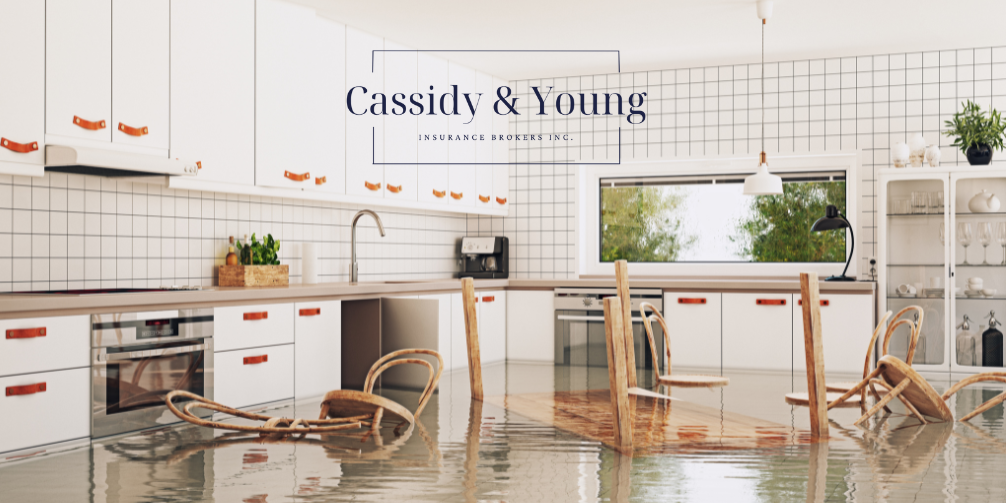Protecting Your Home: Understanding Common Insurance Claims
Imagine this: You’ve just settled into your new home, a sanctuary filled with comfort and cherished memories. You feel secure, knowing you’re protected by home insurance. But then, life throws a curveball—an unexpected event strikes, and suddenly you’re faced with a claim.
Recent data reveals that the average homeowner will file a claim once every 9 to 10 years. This statistic might seem benign, but it underscores a critical reality: understanding common claims can empower you to prepare and potentially prevent them. The most frequent types of home insurance claims often stem from avoidable circumstances. Let’s explore these claims in depth and provide actionable steps to keep your home safe and sound!
1. Water Damage Claims
Water damage tops the list of home insurance claims, accounting for nearly 25% of all claims. It can arise from various sources—burst pipes, leaking roofs, malfunctioning appliances, and even natural disasters. With extreme weather events becoming more frequent, this risk is only increasing.
How to Avoid It:
- Inspect Your Pipes: Regularly check for leaks or corrosion. Look for damp spots or discoloration on walls and ceilings. Insulating pipes helps prevent freezing during colder months, reducing the risk of burst pipes.
- Maintain Appliances: Keep appliances like washing machines and dishwashers in check. Inspect hoses for wear and replace them if needed. Consider installing water leak detectors that alert you to issues before they escalate.
- Check Your Roof: Inspect your roof for missing shingles or signs of damage. Address any issues promptly. Cleaning gutters ensures proper drainage and prevents water backup that can lead to leaks.
2. Fire Damage Claims
Fire damage is another major concern, often caused by cooking accidents, electrical issues, or heating malfunctions. The aftermath can be devastating, not just in terms of property loss, but also the emotional toll it takes on families.
How to Avoid It:
- Install Smoke Detectors: Ensure smoke detectors are on every floor and test them regularly. Replace batteries as needed, and consider investing in smart smoke detectors that send alerts to your phone.
- Maintain Electrical Systems: Have a licensed electrician inspect your wiring periodically. Avoid overloading circuits and unplug appliances when not in use. Using surge protectors can also help safeguard your devices.
- Create a Fire Plan: Develop and practice a fire escape plan with your family. Ensure everyone knows two ways out of each room and designate a meeting point outside. Keep fire extinguishers in key areas like the kitchen and garage.
3. Theft and Vandalism
Theft and vandalism can leave you feeling violated and stressed. According to the FBI, property crime remains a significant concern for homeowners, and the emotional impact can last long after the incident.
How to Avoid It:
- Enhance Security: Install a comprehensive security system with cameras, motion sensors, and alarms. Ensure all entry points are secure with quality locks and consider smart locks that allow you to monitor access remotely.
- Use Lighting: Motion-activated lights around your property can deter potential intruders. Landscape lighting also enhances visibility at night, making it harder for thieves to approach unnoticed.
- Keep Valuables Safe: Store valuable items in a safe or secure location. Maintain a home inventory, documenting your possessions with photos and receipts. This not only helps in recovery but also speeds up the claims process if needed.
4. Wind and Hail Damage
Wind and hail can wreak havoc on your home, especially in regions prone to severe weather. Roofs, siding, and windows are particularly at risk during storms.
How to Avoid It:
- Reinforce Your Roof: Ensure it’s in good condition and consider impact-resistant shingles if you live in a high-risk area. Regular inspections after storms can help identify damage early.
- Trim Trees: Keep trees and shrubs trimmed to prevent them from causing damage during storms. Remove dead branches that could become projectiles in high winds.
- Secure Windows: Install storm shutters or impact-resistant windows to protect against hail and flying debris. Ensure that window seals are intact to prevent leaks.
5. Liability Claims
Liability claims can arise when someone is injured on your property. This includes slip-and-fall accidents or dog bites, making it crucial to have the right coverage.
How to Avoid It:
- Maintain Property: Regularly inspect for hazards like uneven walkways, loose railings, or poorly lit areas. Addressing these issues proactively can prevent accidents.
- Keep Pets Under Control: Ensure your pets are well-behaved and secure. Consider additional liability coverage if needed, especially if you have a breed that insurers may classify as high-risk.
- Review Liability Limits: Check your policy’s liability limits to ensure they provide adequate coverage for potential claims. Discuss with your insurance broker to customize your policy based on your specific risks.
Conclusion
Understanding the most common home insurance claims empowers you to take proactive measures. Regular maintenance, enhanced security, and awareness of potential risks are vital in protecting your home. By implementing these strategies, you can not only safeguard your property but also create a more secure living environment for your family.
If you have questions about your home insurance coverage or need personalized advice on safeguarding your property, don’t hesitate to reach out. I’m here to help you navigate your insurance needs and ensure you’re prepared for whatever life may throw your way!






